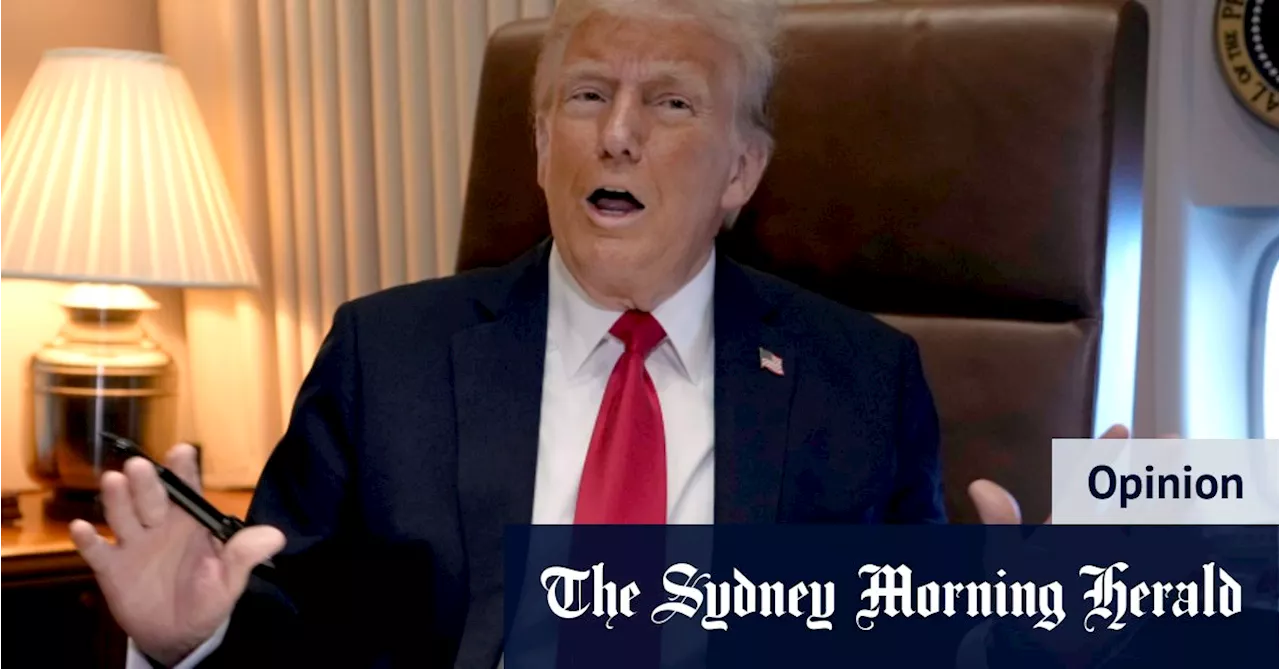This article examines the impact of Donald Trump's recently imposed tariffs on steel and aluminum imports, highlighting their similarities to his 2018 actions. It analyzes the economic consequences, both positive and negative, focusing on the steel industry's experience and the potential ramifications for downstream industries and the global market.
Donald Trump and his advisors exhibit selective memories, cherry-picking historical lessons that align with Trump's protectionist agenda while disregarding those that contradict it. The recently imposed tariffs on steel and aluminum imports to the US largely echo Trump's actions in 2018, when he slapped a 25 percent tariff on steel imports and a 10 percent rate on imported aluminum.
This iteration, however, imposes a 25 percent rate on both steel and aluminum, encompassing all countries, unlike the 2018 version which exempted imports from certain nations, including Australia. Notably, this 2025 version extends to some key downstream products.Both instances saw Trump justify the tariffs on national security grounds, citing unfair trade practices, the revitalization of America's domestic steel and aluminum industries, and the return of jobs lost over decades of decline. While these measures did yield some positive outcomes, albeit at a considerable cost, as illustrated by the steel industry's experience. The Peterson Institute for International Economics reports that US steel prices, for instance, surged by approximately 9 percent following the tariff implementation, and US steel producers saw their pre-tax profits increase by about $2.4 billion. Nearly 9,000 jobs were added. Industry capacity utilization improved, rising from 74 percent in 2017 to about 80 percent in 2018.However, the ripple effects were substantial. Steel is widely used in manufacturing and construction, so higher domestic steel prices inevitably impacted downstream industries. The institute estimated that the tariffs increased costs for steel users by $5.6 billion – effectively $650,000 for each job created within the steel industry. Car manufacturers were particularly hard hit; General Motors reported a cost of about $1 billion, while Ford claimed a $750 million loss due to the tariffs. Despite the 2018 tariffs attracting new investment and boosting industry efficiency, both investment and capacity utilization subsequently declined. Today, the industry operates at approximately 75 percent of its capacity.The US steel industry remains relatively small, supplying only about 17 percent of US demand. Domestic production amounts to roughly 90 million tonnes annually. In stark contrast, China produces just over a billion tonnes per year. Thus, to enhance the profitability of a few companies, steel users who source over 80 percent of their steel from overseas will bear the brunt of the tariffs, or pass the cost on to consumers. The 2018 tariffs did exempt certain countries, including Canada and Mexico, a year after their implementation, following the renegotiation of the North American Free Trade Agreement. Canada stands as the largest exporter of steel and aluminum to the US. The latest tariffs, devoid of exemptions, will undeniably have a far more profound impact than their predecessor. Australia hopes that as one of the few countries with a trade surplus with the US, Trump might once again exempt its exports of steel and aluminum. There's already resistance to any exemption, with Trump's senior counselor for trade and manufacturing, Peter Navarro, a staunch protectionist, informing CNN that Australia is inundating the US market with aluminum and contending that it is too close to China. This likely refers to Rio Tinto, whose largest shareholder, holding a 14.5% stake but no board representation, is Chinalco. Rio owns or controls three of Australia's four major aluminum smelters. The other prominent aluminum exporter is Alcoa, formerly the Aluminium Company of America. Alcoa is a US company, headquartered in Pittsburgh, with its major shareholders being exclusively US institutions. Given that these companies exported only slightly over 80,000 tonnes of aluminum to the US last year, within a market consuming approximately 70 million tonnes annually, characterizing it as a flood seems exaggerated, but Trump and his advisors tend towards hyperbole.If anyone is truly to blame for flooding the steel and aluminum market, it's China, which built a colossal steel industry – producing over half the world's steel – in the decades preceding the pandemic. Its property market collapse subsequently punctured its growth story. China also holds the title of the world's largest primary aluminum producer. With slower economic growth, the property slump, and overinvestment in infrastructure reducing domestic demand, China's steel sector is grappling with overcapacity, reflected in increased exports at lower prices.
Trump Tariffs Steel And Aluminum Protectionism Trade Policy US Economy Global Trade China
Australia Latest News, Australia Headlines
Similar News:You can also read news stories similar to this one that we have collected from other news sources.
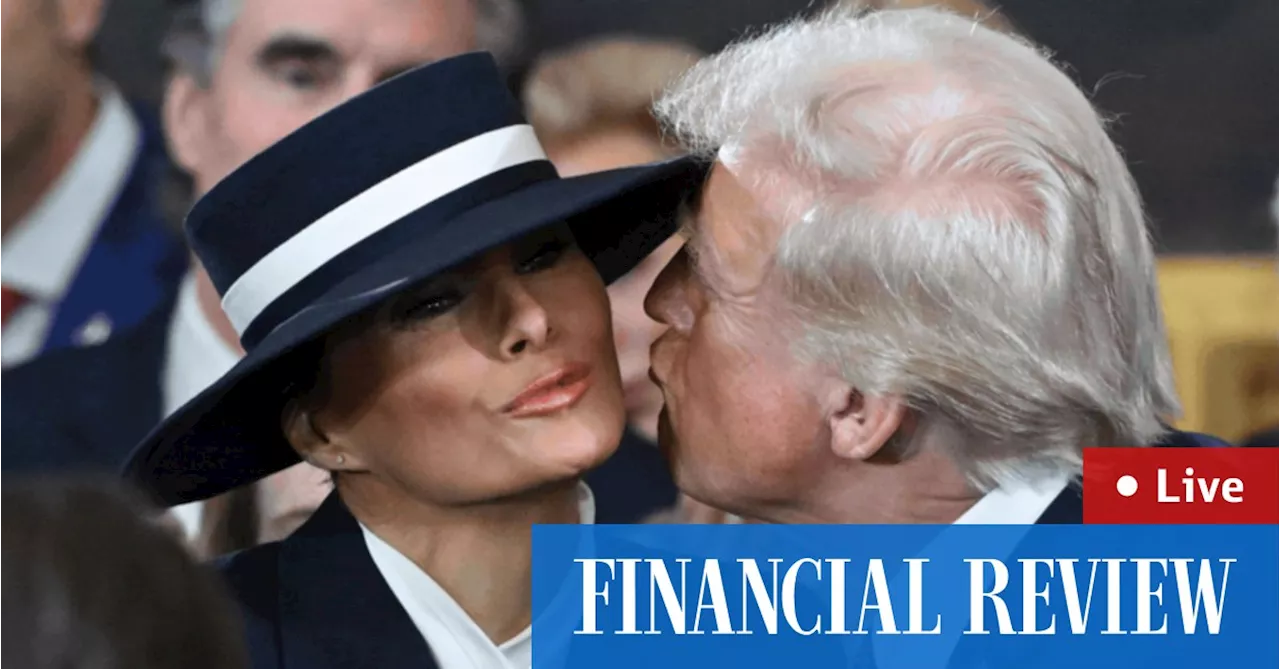 Trump inauguration live updates: Trump won’t rush to impose tariffs on China, Canada, Mexico“We will be the envy of every nation, and we will not allow ourselves to be taken advantage of any longer,” Trump said in a speech. Follow updates here.
Trump inauguration live updates: Trump won’t rush to impose tariffs on China, Canada, Mexico“We will be the envy of every nation, and we will not allow ourselves to be taken advantage of any longer,” Trump said in a speech. Follow updates here.
Read more »
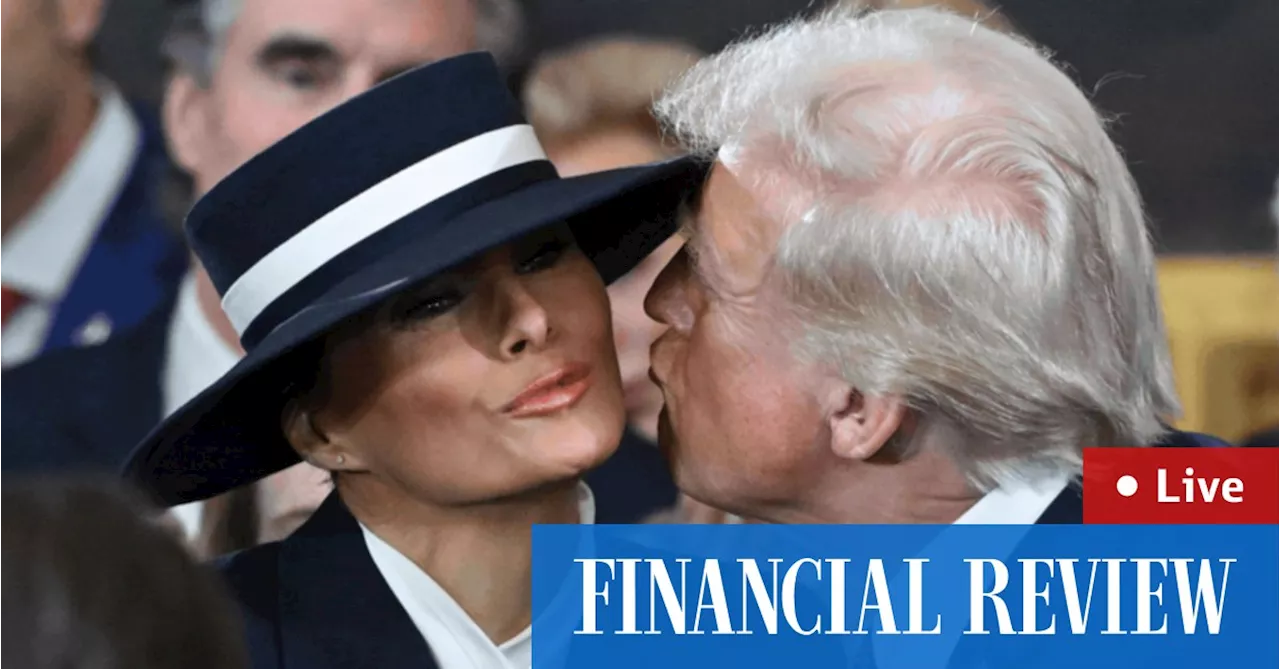 Trump inauguration live updates: Trump won’t rush to impose tariffs on China, Canada, Mexico“We will be the envy of every nation, and we will not allow ourselves to be taken advantage of any longer,” Trump said in a speech. Follow updates here.
Trump inauguration live updates: Trump won’t rush to impose tariffs on China, Canada, Mexico“We will be the envy of every nation, and we will not allow ourselves to be taken advantage of any longer,” Trump said in a speech. Follow updates here.
Read more »
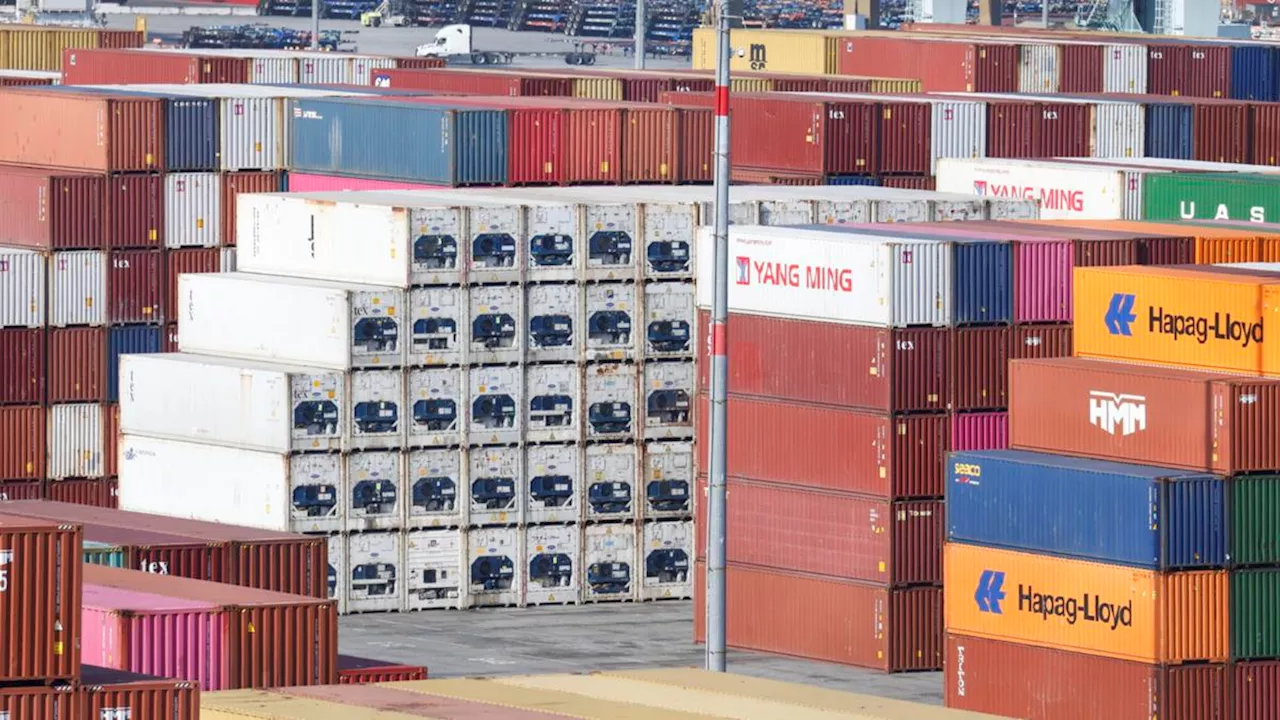 China Imposes Tariffs and Export Controls in Response to US TariffsChina retaliated against US tariffs on Chinese imports with its own tariffs on American goods and export controls on key raw materials. The move escalates trade tensions between the two economic giants.
China Imposes Tariffs and Export Controls in Response to US TariffsChina retaliated against US tariffs on Chinese imports with its own tariffs on American goods and export controls on key raw materials. The move escalates trade tensions between the two economic giants.
Read more »
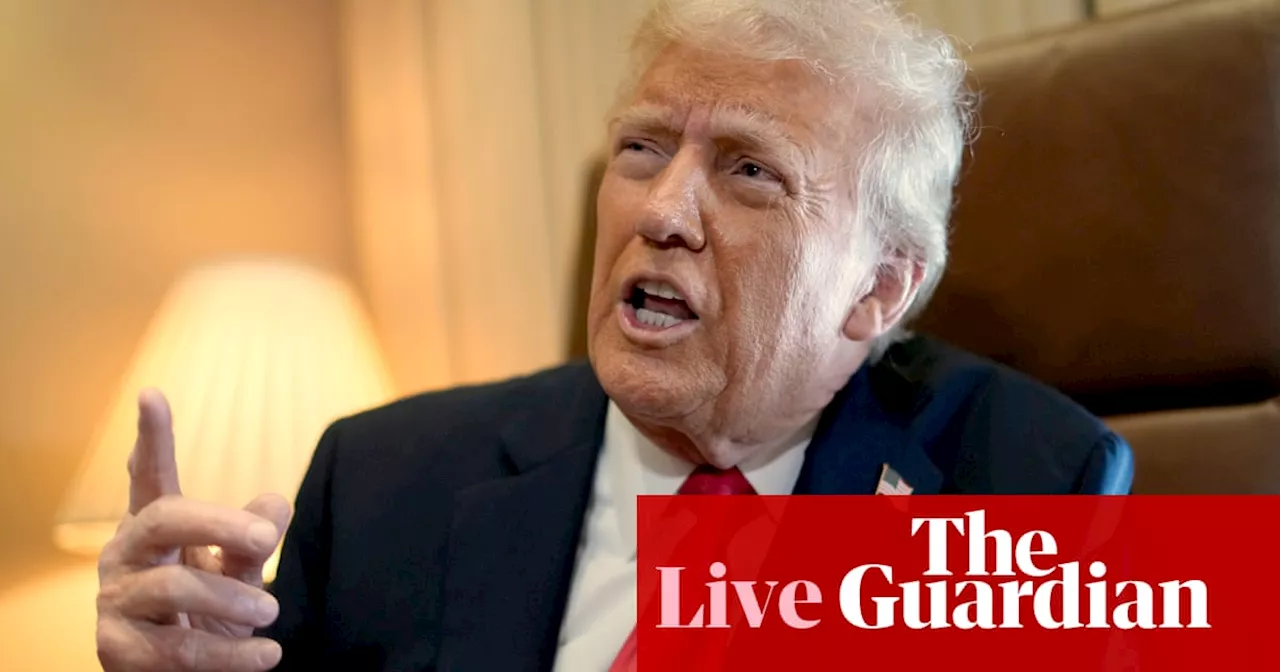 Politics live: Donald Trump announces 25% tariffs on steel and aluminium imports including from AustraliaFollow live
Politics live: Donald Trump announces 25% tariffs on steel and aluminium imports including from AustraliaFollow live
Read more »
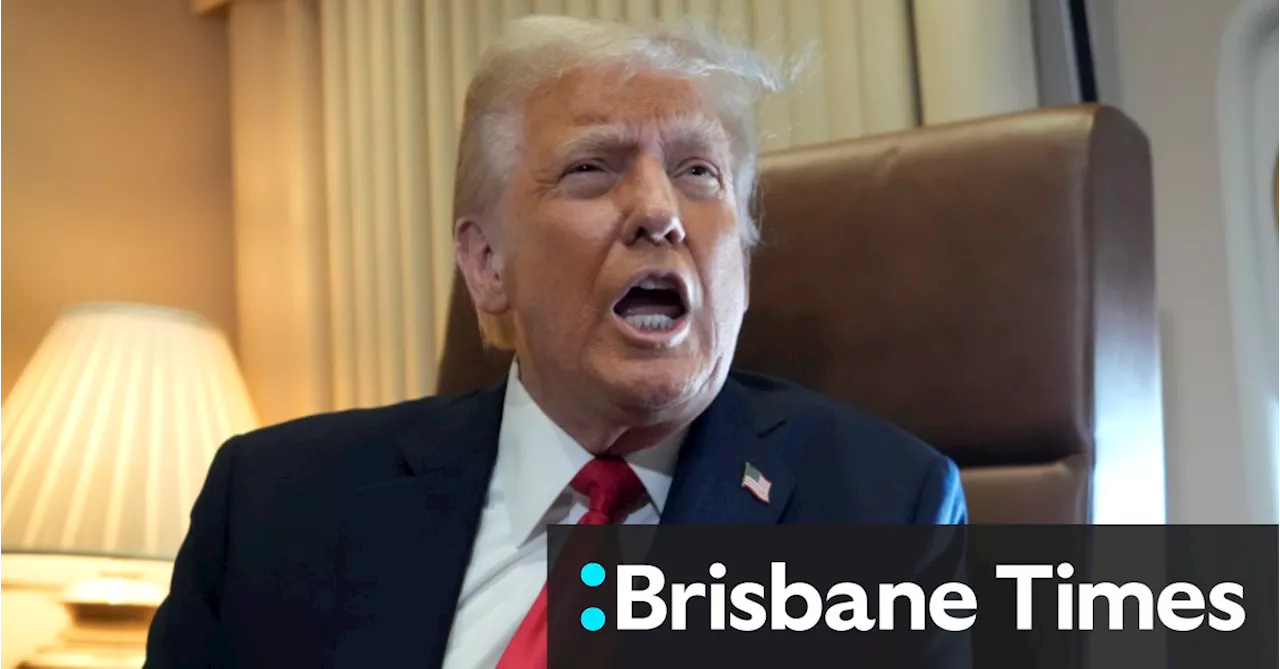 Donald Trump announces 25 per cent steel and aluminium tariffs“Any steel coming into the United States is going to have a 25 per cent tariff,” the president told reporters en route to the Super Bowl in New Orleans.
Donald Trump announces 25 per cent steel and aluminium tariffs“Any steel coming into the United States is going to have a 25 per cent tariff,” the president told reporters en route to the Super Bowl in New Orleans.
Read more »
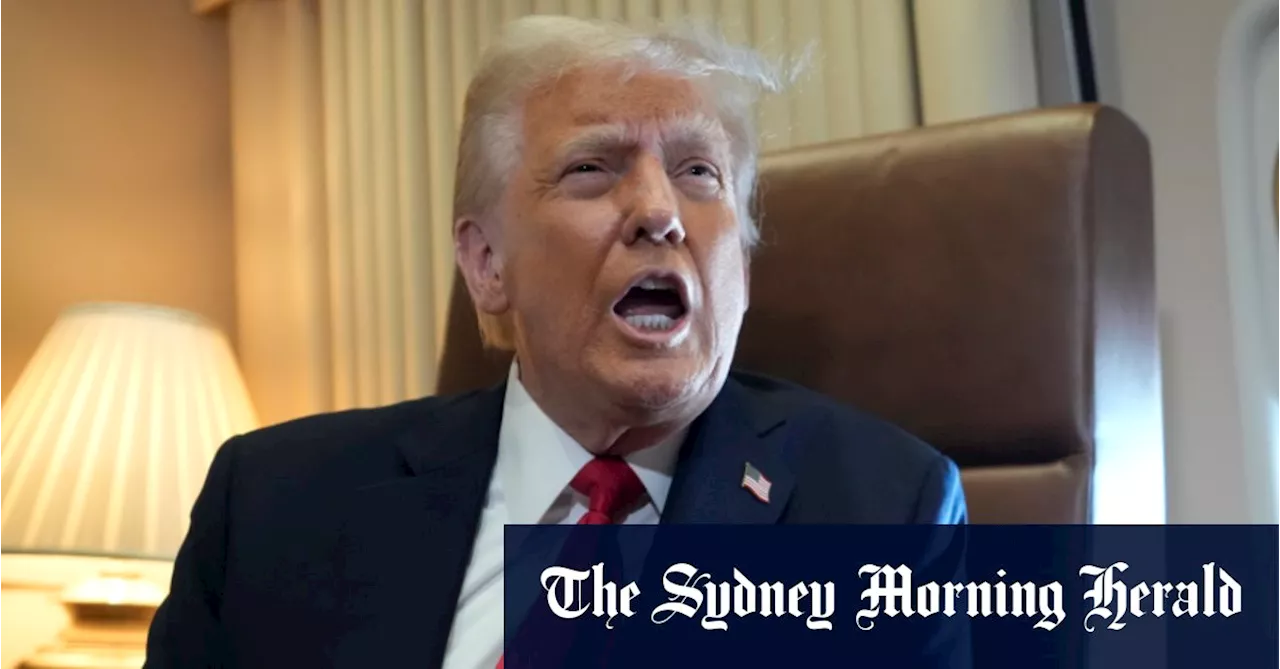 Donald Trump announces 25 per cent steel and aluminium tariffs“Any steel coming into the United States is going to have a 25 per cent tariff,” the president told reporters en route to the Super Bowl in New Orleans.
Donald Trump announces 25 per cent steel and aluminium tariffs“Any steel coming into the United States is going to have a 25 per cent tariff,” the president told reporters en route to the Super Bowl in New Orleans.
Read more »
